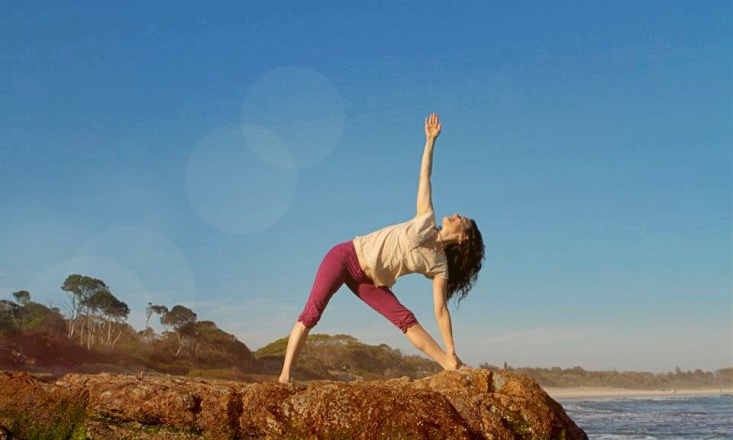I always thought that yoga was a cure-all. In fact I was absolutely convinced it was. That’s why it was so hard to believe that someone like me, a yoga teacher for over 23 years, could end up being a late onset adult type 1 diabetic.
But now, almost seven years since my diagnosis, I’m convinced that it’s because I’ve practiced yoga almost half my life that I’ve been able to a manage it so well.
Diabetes Is Complicated
Diabetes is a complicated disease. On the surface it seems to be about sugar. And it is, because the body runs on sugar and sugar feeds the brain.
But diabetes is really about how the sugar is managed by the body. Too much sugar in the body is like having too much acid in your car battery; it corrodes the machinery. Not enough sugar, and the brain is starved for food.
A diabetic is just like anyone else, except that the pancreas and its major hormone insulin, which regulates the sugar in the body, both don't behave like they should. Insulin acts like a door that brings energy into the cells. In a diabetic, there either isn’t enough of it, none at all, or the cells resist it.
When I was diagnosed, I buried my head in the sand, telling myself it was a parasite that had gotten out of hand. I armed myself with herbs and alternative treatments, changed my diet, kept up my rigorous yoga practice, and hoped for the best. But hope never cured a thing.
How Yoga Can Help
If you’re diabetic and have always wanted to do yoga or have already started a yoga practice, I offer you my 30 years of practical experience and say YES! Yoga has profound benefits, the most important one being that it mitigates stress.
You see, anyone, no matter what their health condition, knows that stress plays a major part in either the onset or progression of an illness.
Breathing and moving the body with focus and concentration takes the mind out of its habitual preoccupation with worrisome thoughts. It brings the mind into a continuum, and in that moment when the mind is completely absorbed, it forgets where it is, who it is, and what disease it has.
Living day in and day out with a disease like diabetes is like being on call 24/7.~Rachel Zinman
In my own experience, a daily yoga practice is one of the only ways I get to put the phone on silent. I’m aware for the hour of my practice that my blood sugar may fluctuate, but I choose to trust my body’s innate intelligence.
Recently, I participated in a seven-day continuous glucose monitoring study wearing a machine that recorded my blood sugar levels every minute of every hour. The researcher who fitted me for the machine was extremely excited to see what my blood sugars would do during my yoga practice.
The results were exactly as I thought they would be: the slow and steady breaths and deep concentration I practiced with each pose as well as the silent meditation that followed kept me calm and my levels steady.
The Conclusion? Yoga Works!
People often ask me how I face a disease that is incurable and full of restrictions. My answer is simple: I approach it like I approach my yoga practice. It takes determination, skill, and strength to master a difficult yoga pose, and patience to sit, watch the breath, and steady the mind in meditation.
If I approached my practice with laziness, frustration, or fear of failure, I’d never master a complicated pose like Handstand. And even when I’m in a pose and every thing's going perfectly, I can’t control the outcome.
There’s always that point where the perfect balance point tips to imbalance, and I’ve fallen out of the pose. Regardless of the ups and downs of daily practice, I feel grateful for the opportunity to attempt to find mastery.
Wisdom from the Sutras
In the Yoga Sutras of Patanjali, there a beautiful Sutra: “Abhyasa Vairagya abhyam tan Nirodhah”
Abhyasa means ‘practice’ and Vairagya means ‘no longer seeing or seeking pleasure or pain in the object,’ whether that is an actual thing or the thought of the object itself. Nirodhah means ‘tranquility’ or ‘peace.’
Thus, “Abhyasa Vairagya abhyam tan Nirodhah” means ‘practicing for its own sake, without expectation,’ and that ‘because we are the peace already, there’s nothing we need to do to be ourselves.’
I used to think that yoga was a cure-all. And in my mind it still is. It’s cured me of my need to make things better, it’s caught me when I’ve fallen, taught me that illness does not signify failure, and finally with lots of practice….it's helped me to accept what is.
Image Credit/Yogini: Rachel Zinman


